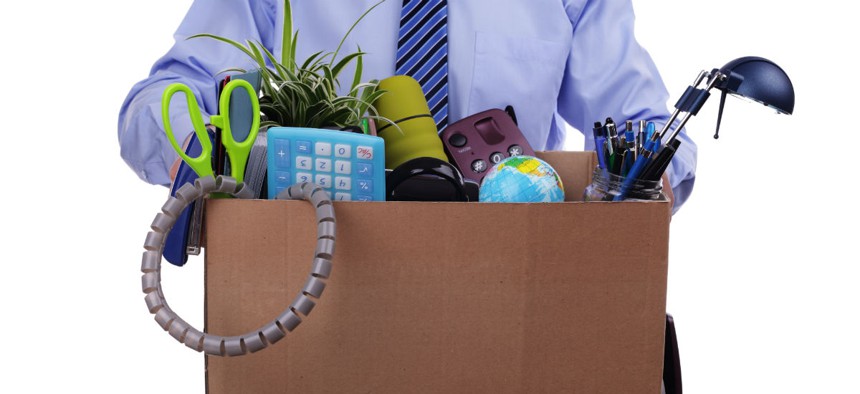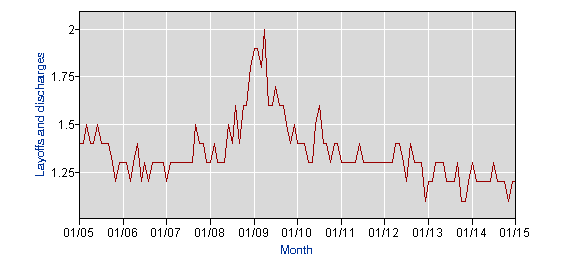
Brian A Jackson/Shutterstock.com
Science Agrees: Being Laid Off Is Terrible
New research from England suggests that cutbacks can lead to lasting trust issues.
I graduated from college in 2007 and took an entry-level reporting job in Hong Kong to spend time with extended family and work on my Cantonese, but by the end of 2008, my classmates in the U.S. had just one piece of advice for me: Don't come back until there are jobs. Even my parents, who had been asking me to return to the continent every chance they got, thought it might be a good idea to hide out in Asia until the Great Recession passed.
During the Great Recession, layoffs and discharges in the U.S. spiked to a rate of 2 percent of total employment in the beginning of 2009. Quite a few of my friends and classmates were laid off from their jobs, and though the economic recovery is underway, many of them still have residual fears of being laid off—in fact, new research shows that being laid off could cause a worker to mistrust society for years.
The Percentage of U.S. Workers Who Were Laid Off, From 2005 to 2015

“Society is still recovering from one of the longest recessions this century and much has been discussed in counting the economic costs of that. This study looks at the social costs of recession," says James Laurence, a sociologist and research fellow at the University of Manchester, of his research.
Laurence's study looked at a sample of nearly 7,000 individuals in the U.K. to investigate the psychological effects of being laid off. The question asked was, "Generally speaking, would you say that most people can be trusted, or that you can’t be too careful in dealing with people?" The answers ranged from "most people can be trusted" to "can't be too careful" to "depends." The respondents were asked this question at age 33, and then again 17 years later, at 50.
Laurence found that individuals who experienced a layoff were 4.5 percent less likely to trust even 17 years later. This effect was even stronger for individuals who placed a greater value on work and career, at 7 percent. "One of the striking findings of the research was that how being laid off affected someone's social trust seemed highly dependent on their level of 'work-centrality,'" says Laurence.
Perhaps it's not surprising that those who hold work as important to both identity and self-worth are more sensitive to layoffs, but Laurence also found that being laid off eroded trust much more than being fired, having a contract expire, or quitting a job for personal reasons. "When people are laid off there is a sense of powerlessness about the situation, that it is out of their control, and that it is inherently unjust," says Laurence.
But given that layoffs are sometimes unavoidable, why place so much trust in one's employer? Laurence explains that trust is important in the workplace and society overall because it's proven to have good outcomes.
"There's lots of good work showing that teams of employees who trust one another and the company they work for, who have higher morale, and greater job security, are more productive, creative and efficient. In other words, there is a big onus on companies to cultivate trust with their employees."
Beyond the workplace, societies with higher levels of trust see lower levels of corruption and better individual well-being, Laurence notes. To maintain trust, Laurence stresses that how a job ends matters quite a lot. Research has shown that voluntary redundancy —whereby companies going through downsizing ask their employees to resign— is less harmful psychologically than being laid off , and Laurence suggests that companies may consider these options to reduce the pain.
"Preparing employees that layoffs may be occurring, entering into a dialogue with them, and especially providing phased voluntary redundancy options, may all go a long way to limiting the detrimental effects of redundancies," says Laurence. It wouldn't be complete consolation, but it would be some.
( Top image via Artco / Shutterstock.com )






